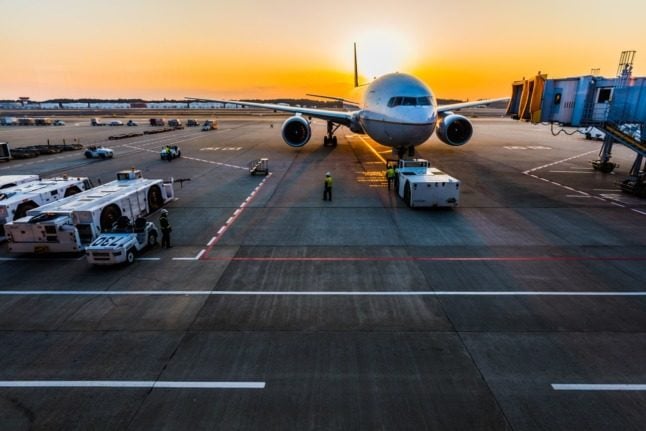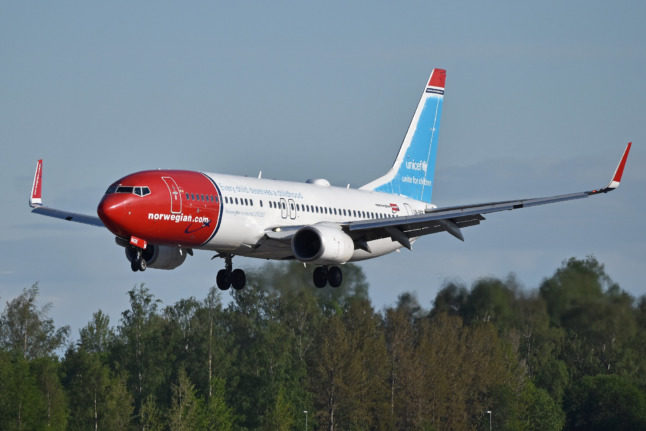While the Nordic country is not a member of the EU, it is part of the European Economic Area (EEA), which includes the EU and the member states of the European Free Trade Association (EFTA) — except Switzerland — and in which the free movement of people is the general rule.
The EFTA Surveillance Authority (ESA), which monitors compliance among EEA members, said Thursday it believed the movement restrictions adopted by Norway in response to the pandemic had been excessive.
“EEA States are permitted to restrict the movement of EEA nationals in their efforts to contain the COVID-19 pandemic,” the ESA said in a statement.
“But such restrictions must not go beyond what is necessary, must be consistent, and must not be discriminatory,” it added.
On January 29, Norway closed its borders to most travellers, with rare exceptions.
The rules have since been relaxed, but up until last week foreigners who were legal residents in the country were blocked from entry unless they were on a national registry.
“ESA has in recent months taken note of a substantial number of people negatively affected by the Norwegian entry restrictions,” the authority said.
“These include people being restricted from accessing their homes, blocked from taking up new jobs or returning to their existing work, or prevented from seeing their partners and family members,” it added.
READ ALSO:
- Reader Question: When can my partner travel to Norway?
- Can I enter Norway if I’ve been vaccinated?
- ‘Inhumane and discriminatory’: How Norway’s Covid border closure has left lives on hold
The authority has sent a letter of formal notice to Norway, the first step in an infringement procedure against EEA members.
The Norwegian government now has six weeks to state its case, before the authority makes its final ruling.
“Our strict entry rules are a major reason why, throughout the pandemic, we have had a lower level of infection than most other countries in the world,”
Justice Minister Monica Maeland told newspaper Dagbladet.
“But the rules must of course be in line with our legal obligations under the EEA,” Maeland added.
Since the start of the pandemic, the country of 5.4 million people has recorded fewer than 124,000 cases of Covid-19, and 783 associated deaths.



 Please whitelist us to continue reading.
Please whitelist us to continue reading.
I received a job offer in Norway around December 2020 with a start date of March 1st, 2021. The last day at my previous job was on January 29th, 2021, the day that Norway closed its borders. With a re-opening date set (at that time) for later in February I proceeded with my plans to move to Norway, which included securing plane tickets and a rental apartment in Norway, which included a hefty deposit. My residence permit completed processing and all I needed to do to start my job was go to a police station (in Norway) to finish the process of applying for my work permit.
Now, nearly 4 months later, I’ve been paying double-rent every month with no work income, which has equated to $3600 USD (around 30.000 NOK), I’ve rebooked flights on a nearly twice-a-month basis, usually paying a fee every time, and I’ve had my hopes about finally entering Norway raised and knocked down time after time after time. I’m now also paying for health insurance since I no longer have a job at home which is very expensive, but being without it in the US especially during a pandemic is a roll of the dice on either your health or a lifetime of repaying medical bills if something should happen.
My new job in Norway was able to secure me a temporary job in Denmark so that I can fly in there and earn money while I wait to enter Norway (Denmark allows entry to foreigners with jobs in Denmark), but that process is another 6 to 10 weeks, and entailed me paying another $800 to fly to another part of my country so that I could apply for the Danish work permit. Luckily my job will be paying rent for my accommodations there, but now they will be spending extra money because Norway will not let in foreign workers with a job. Then, with talks of allowing vaccinated people in “soon”, my hopes were raised yet again as I am privileged enough to have been vaccinated, only to find that it would be months before that became an option, because Norway doesn’t have a way to verify proof of vaccination.
Every workaround and every option is costing me more money that I don’t have, and more time spent in anxiety and depression about the uncertainty of my future, and with Danish covid-19 numbers on the rise, I can’t help but fear that they too may restrict their borders before I can get there.
Compared to where I live, Norway seems like a paradise. I have friends who immigrated there and are quite happy with their lives, but after so long of a wait I can’t help but wonder if this is a hint of the Norwegian xenophobia that some people feel, but every day I fight that feeling by reminding myself that many lives were saved because of the Norwegian border closures, while hoping that it has nothing to do with not being Norwegian. I had at least expected incrementally lifted measures for some instances, which I had hoped I would have qualified for, being a vaccinated individual whose passport will allow me into Norway, and one with a skilled-worker residence permit and a job.
I’m constantly torn between my situation which feels more and more dire every month, and the direness of the pandemic. I’m always shifting between frustration at my situation and shame for considering myself as some kind of exception to a rule made for saving lives. I am, however, feeling more validated in my frustration thanks to the ESA’s actions, and by those who are also in my situation, so thank you to everyone who is speaking up.
I’m in the exact same position (down to the start date), from Canada. Unfortunately low-infection countries like Norway have boxed themselves in politically – there’s just no tolerance among the population for taking reasonable-seeming risks that have a remote change of leading to increased outbreaks. To be fair, throughout 2020 there were instances of infections jumping from worksites with improperly quarantined foreign workers. On the bright side at least it’s not Australia we’re trying to get into. I predict that cooler heads will prevail and that we will be allowed entry in July, coinciding with phase 3 of the re-opening and the rollout of the EU/EEA vaccine pass.
Interestingly, our family is also in the same situation as well. However we are a family of four and have the added challenges of removing children from schools in the USA only to be stuck and having to plan to re-enroll for the fall in case we still haven’t been able to go. Additionally I am unable to work le look for work due to the extreme uncertainty and lack of childcare. So just compounding problems.